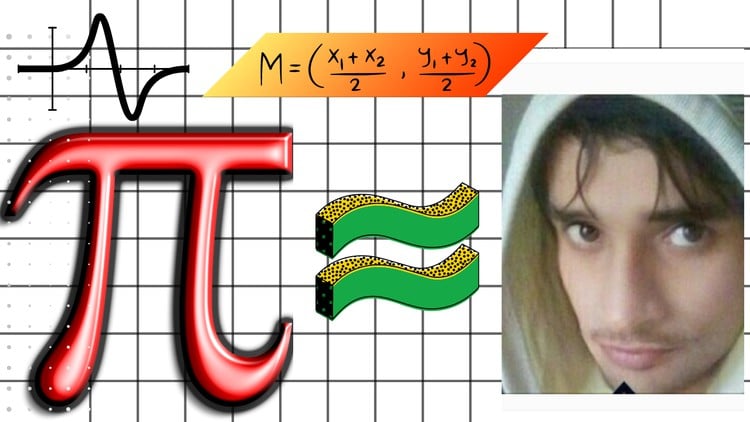
From Logic to Algorithms, Explore the Foundations of Digital Discovery
⏱️ Length: 2.3 total hours
⭐ 4.57/5 rating
👥 6,796 students
🔄 December 2024 update
Add-On Information:
Note➛ Make sure your 𝐔𝐝𝐞𝐦𝐲 cart has only this course you're going to enroll it now, Remove all other courses from the 𝐔𝐝𝐞𝐦𝐲 cart before Enrolling!
- Course Overview
- Delve into Set Theory, the foundational discipline and universal language underpinning all modern mathematics and theoretical computer science. This course meticulously bridges abstract logical principles with their digital applications. Beyond basic definitions, explore set theory’s sophisticated architecture, from axiomatic origins to profound implications for computation and data representation.
- Uncover the intricate relationships between various collections of elements, formalizing concepts such as equality, inclusion, and membership. You will gain a deep understanding of cardinality, distinguishing between different “sizes” of infinity and appreciating the revolutionary insights provided by Georg Cantor’s work on countable and uncountable sets. This includes the exploration of power sets and their exponential growth, revealing the vast complexity that can arise from simple collections.
- Explore the rigorous formalization of relations and functions as specific types of sets, understanding their critical role in defining structure and mapping between mathematical objects. This perspective is vital for comprehending data relationships in databases, graph theory, and the very architecture of algorithms. You will learn to construct and analyze complex set-theoretic expressions, developing a powerful toolset for logical reasoning and problem-solving.
- Grasp the conceptual underpinnings of mathematical induction and recursive definitions through a set-theoretic lens, recognizing how these principles facilitate the construction of infinite structures and the proving of properties for arbitrarily large sets. This foundational knowledge is crucial for anyone aspiring to master algorithm design, formal verification, or advanced programming paradigms.
- Appreciate the historical context and philosophical significance of set theory, including a brief look at paradoxes that shaped its development, such as Russell’s Paradox, and how these challenges led to more robust axiomatic systems like ZFC (Zermelo-Fraenkel set theory with the Axiom of Choice). This provides a richer understanding of the rigorous standards expected in mathematical and logical discourse.
- Requirements / Prerequisites
- An open and curious mind keen on abstract logical thinking and rigorous problem-solving.
- Basic familiarity with general mathematical notation and an eagerness to engage with symbolic reasoning. No advanced calculus or complex algebra is required.
- Comfort with conceptual analysis and logical deductions. The course starts from fundamental principles, making it accessible even to those new to formal mathematical proofs.
- Reliable computer and internet access for course materials and interactive elements.
- Skills Covered / Tools Used
- Abstract Formalization: Develop the ability to translate real-world problems and informal descriptions into precise, unambiguous mathematical language using set theory.
- Logical Deduction & Proof Construction: Master techniques for constructing rigorous proofs and validating mathematical statements, fostering precision in argumentation that transcends academic disciplines.
- Conceptual Modeling: Learn to build powerful conceptual models for data structures, algorithms, and logical systems, using sets as the fundamental building blocks. This skill is invaluable for software architecture and theoretical computer science.
- Analytical Problem Solving: Enhance your capacity to break down complex problems into their atomic components and analyze their relationships systematically, leading to elegant and robust solutions.
- Manipulating Infinite Structures: Gain comfort and intuition in dealing with infinite sets and their properties, a crucial aspect for advanced topics in mathematics, computer science, and philosophy.
- Tool Usage: Primarily mental models, pen and paper for working through examples and proofs, and the conceptual framework of set theory itself as the ultimate “tool” for intellectual discovery.
- Benefits / Outcomes
- Enhanced Computational Thinking: Solidify your understanding of the logical foundations upon which all computing systems are built, from boolean logic gates to complex databases and programming paradigms. This provides a distinct advantage in software development and system design.
- Robust Problem-Solving Framework: Acquire a powerful, universally applicable framework for approaching problems in mathematics, computer science, engineering, and even philosophy, by reducing them to fundamental set-theoretic operations.
- Gateway to Advanced Disciplines: Establish an indispensable foundation for further studies in advanced discrete mathematics, algorithm theory, formal logic, artificial intelligence, database theory, topology, and even real analysis.
- Improved Precision and Clarity: Develop an unparalleled ability to communicate ideas with extreme precision and clarity, a highly valued skill in both technical and non-technical professional environments.
- Confidence in Abstraction: Build confidence in tackling highly abstract concepts, strengthening your cognitive flexibility and intellectual resilience when faced with new and challenging theoretical landscapes.
- Critical Thinking Mastery: Sharpen your critical thinking skills by rigorously evaluating statements, identifying logical fallacies, and constructing watertight arguments, making you a more discerning analyst of information.
- PROS of this Course
- Provides a highly comprehensive and deeply foundational understanding of a core mathematical discipline.
- Excellent course rating and high student enrollment indicate a well-regarded and effective learning experience.
- Directly applicable insights for diverse fields including computer science, logic, data science, and pure mathematics.
- Content is regularly updated, ensuring relevance and incorporating current perspectives (December 2024 update).
- Structured to foster significant improvements in logical reasoning, analytical skills, and abstract problem-solving.
- The concise 2.3 total hours suggest an efficient and impactful learning experience for busy individuals.
- CONS of this Course
- Requires a genuine commitment to abstract reasoning and a willingness to engage deeply with formal logical structures, which may be challenging for learners unaccustomed to such rigorous mental exercises.
Learning Tracks: English,Teaching & Academics,Math
Found It Free? Share It Fast!